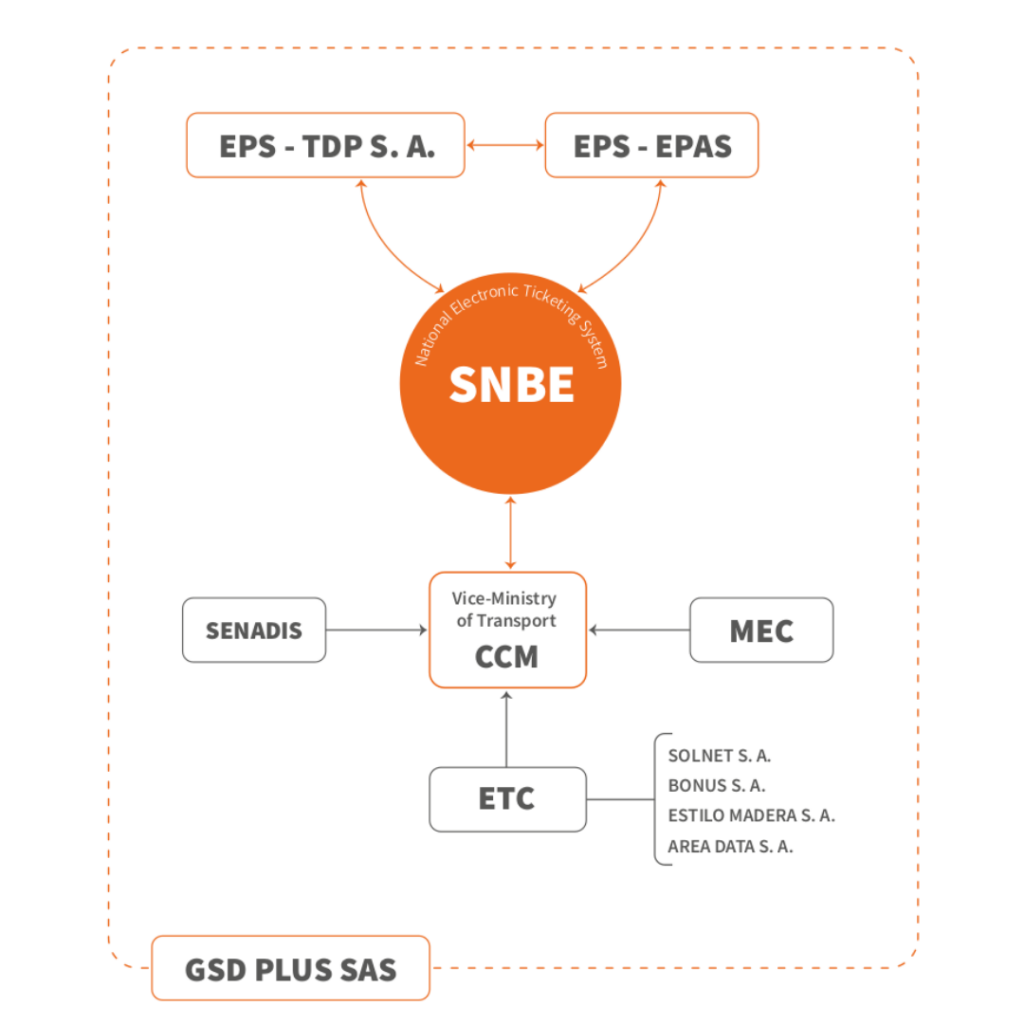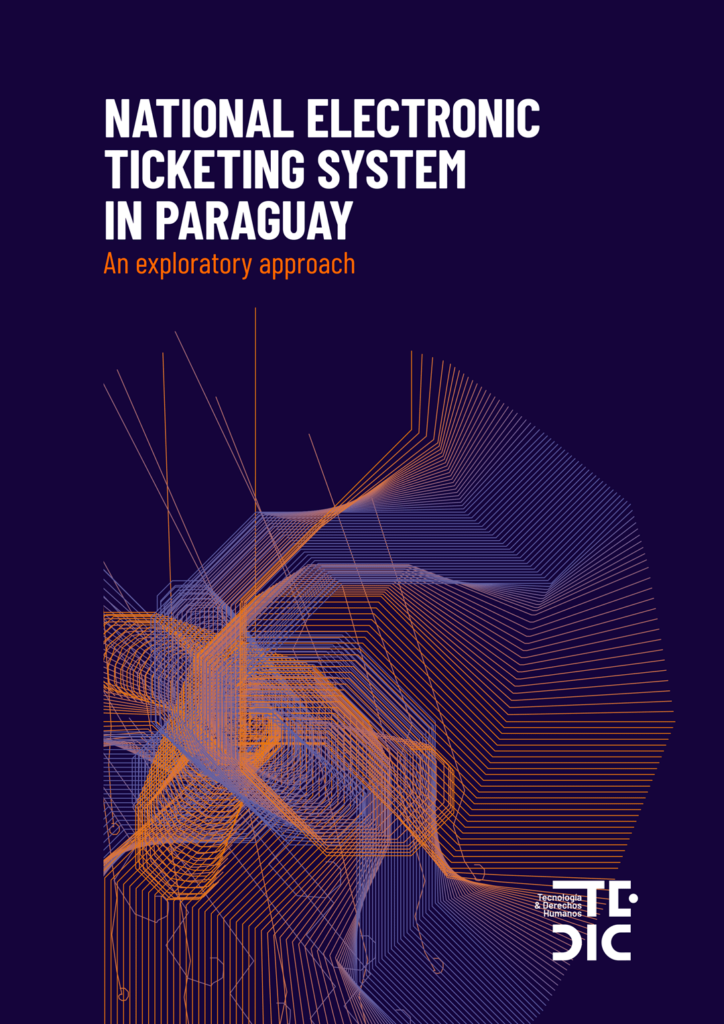
This research offers an exploratory study of the National Electronic Ticketing System in Paraguay (SNBE in its Spanish acronym). It focuses particularly on identifying public and private actors involved in its design and implementation and its impact on the privacy and protection of personal data of users of public transport.
TEDIC has been carrying out advocacy actions for years in order to achieve a greater transparency and scrutiny concerning the SNBE through blog-posts on the risks and opportunities of the system, as well as through a strategic litigation to access technical information [in Spanish]. Therefore, this study is embedded in TEDIC’s interests in raising awareness about the need for digitalization processes of the State but with a human rights perspective by design.
The main objective of this research is to raise awareness about the electronic ticketing system in the city of Asunción and to further understand the current practices regarding the protection of personal data within the SNBE. We hope that the findings of this research will serve to guide the actions of digitalization of public transport that are underway in other cities beyond Paraguay’s capital.
On the other hand, and taking into account the high degree of insertion of the private sector in the implementation of this service, this research presented the opportunity to characterize the current framework in terms of Public-Private Partnerships (PPP). It specifically seeks to understand the state of implementation of this type of projects in the development of digital infrastructures for the delivery of public services, and thus identify the safeguards in terms of personal data protection that should be taken into account in projects of this matter.
Main findings:
- After almost two years of partial and then total implementation, the Vice-Ministry of Transport has yet to complete the technological component of the Control and Monitoring Center.
- A comprehensive personal data protection law is needed. The research identified that in the design phase of the electronic ticketing system, there was little to no attention to impact studies on personal data and human rights. This is evidence of a major weakness when it comes to detecting potential risks associated with a system such as the SNBE.
- There is a lack of strategic vision on part of authorities who do not foresee knowledge transfer mechanisms that function in parallel to the implementation of public services by private actors. This is particularly evident in the lack of capacity on behalf of the Vice-Ministry of Transport in effectively following the different steps involved in the validation of potential Service-Provider Companies without the involvement of the Company GSD Plus S.A.S.
- To date, there is only one active project under the PPP modality. This research also identifies a project related to the provision of ICT infrastructure for the emission of bio-metric identity cards. Although the project was rejected, it is important to note the lack of assessments regarding the negative impacts and outcomes an implementation of this type of system may have from a human rights and personal data protection perspective.
- There is a significant shortfall in the transparency of data gathered by the electronic ticketing system. It is essential to develop different mechanisms for citizen control that allow for a better understanding of the system. Transparency must also extend to the technical particularities.
Thereby, as a synthesis of the different findings, this study has mapped private actors involved in digital infrastructure form start to finish. This is an issue that deserves attention from a perspective that considers the sovereignty of information generated through the provision of public services, as well as the necessary safeguards to protect the personal data of public transport users.



